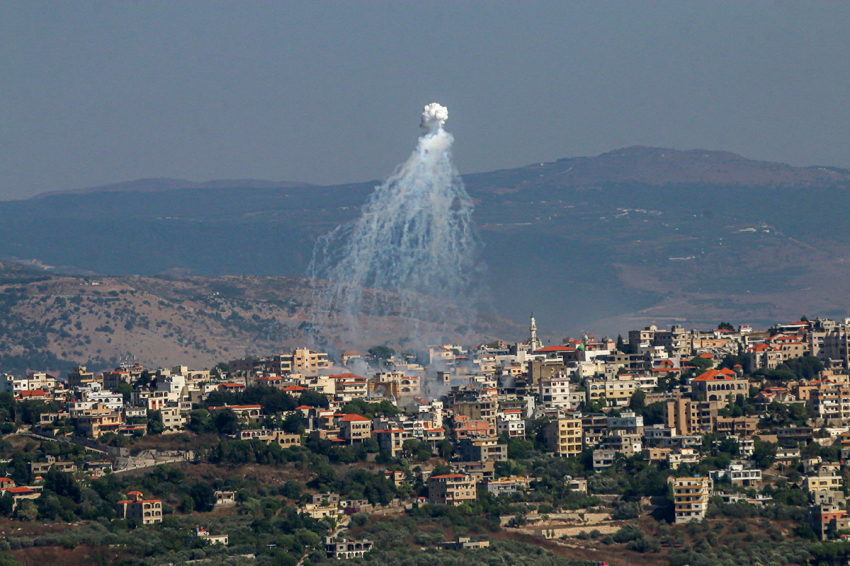US, UK urge citizens to leave Lebanon as tensions escalate: 'Book any ticket available'

The American and British governments have strongly advised their citizens to evacuate Lebanon immediately due to heightened tensions and the potential for conflict in the region. This follows a series of recent high-profile incidents, including assassinations and attacks, amid escalating tensions between Hezbollah and Israel.
The U.S. and U.K. issued urgent warnings to their nationals in Lebanon on Saturday, stressing the escalating threat level.
The U.S. Embassy strongly urged U.S. citizens in Southern Lebanon, near the Syrian border or in refugee settlements to depart immediately, and advised others against traveling to Lebanon due to crime, terrorism, civil unrest, kidnapping, unexploded landmines, and the risk of armed conflict.
The U.S. Embassy advised American citizens in Lebanon “to book any ticket available to them, even if that flight does not depart immediately or does not follow their first-choice route.” It said they should leave Lebanon using any available commercial transportation options.
U.K. Foreign Secretary David Lammy stated, “Tensions are high, and the situation could deteriorate rapidly. While we are working round the clock to strengthen our consular presence in Lebanon, my message to British nationals there is clear — leave now.”
The advisory aligns with similar statements from other nations, reflecting a growing international consensus on the risks of remaining in Lebanon.
Jordan has also issued warnings to its citizens, urging immediate departure and advising against travel to Lebanon due to “developments taking place in the region” and the overarching concerns for citizen safety, The Times of Israel noted.
Amid these advisories, many countries have escalated their travel warnings. Canada has cautioned against all travel to Israel, pointing to the potential dangers posed by the regional armed conflict, which could impact commercial travel options and lead to possible airspace closures and flight cancellations.
On July 27, a rocket attack by the Hezbollah terrorist group in the Golan Heights region killed 12 children, prompting Israel to promise retaliation against Hezbollah and heightening fears of broader regional instability.
Following the Hezbollah attack, the situation intensified with the assassination of Fuad Shukr, a top Hezbollah commander, and Ismail Haniyeh, the political leader of the Hamas terror group, in Tehran, according to France 24. The assassinations have significantly escalated tensions, with Iran and Hezbollah vowing to respond.
The U.S. has responded by increasing its military presence in the region, signaling strong support for Israel amid these threats.
Amid the tensions, at least 18 airlines have canceled flights to both Lebanon and Israel. This includes major carriers like Emirates, Aegean, Air France and Lufthansa.
On Friday, the U.S. announced the deployment of a fighter jet squadron to the Middle East, aimed at strengthening defenses against potential retaliation by Iran and its proxies following Haniyeh’s assassination.
The ongoing tensions began after Hamas initiated a series of attacks in southern Israel on Oct. 7, 2023, resulting in over 1,100 deaths of Israelis and dual nationals, and the abduction of 240 individuals. The attacks signified the onset of a new conflict between Israel and Hamas.
Thereafter, Gaza experienced severe bombardment and intense ground conflicts, forcing more than half of Gaza’s 2.2 million residents to migrate southward. According to the health ministry controlled by Hamas, about 38,000 Palestinians have died in the conflict.
Of the hostages taken by Hamas, 120 remain in Gaza and 43 have been declared deceased.



























